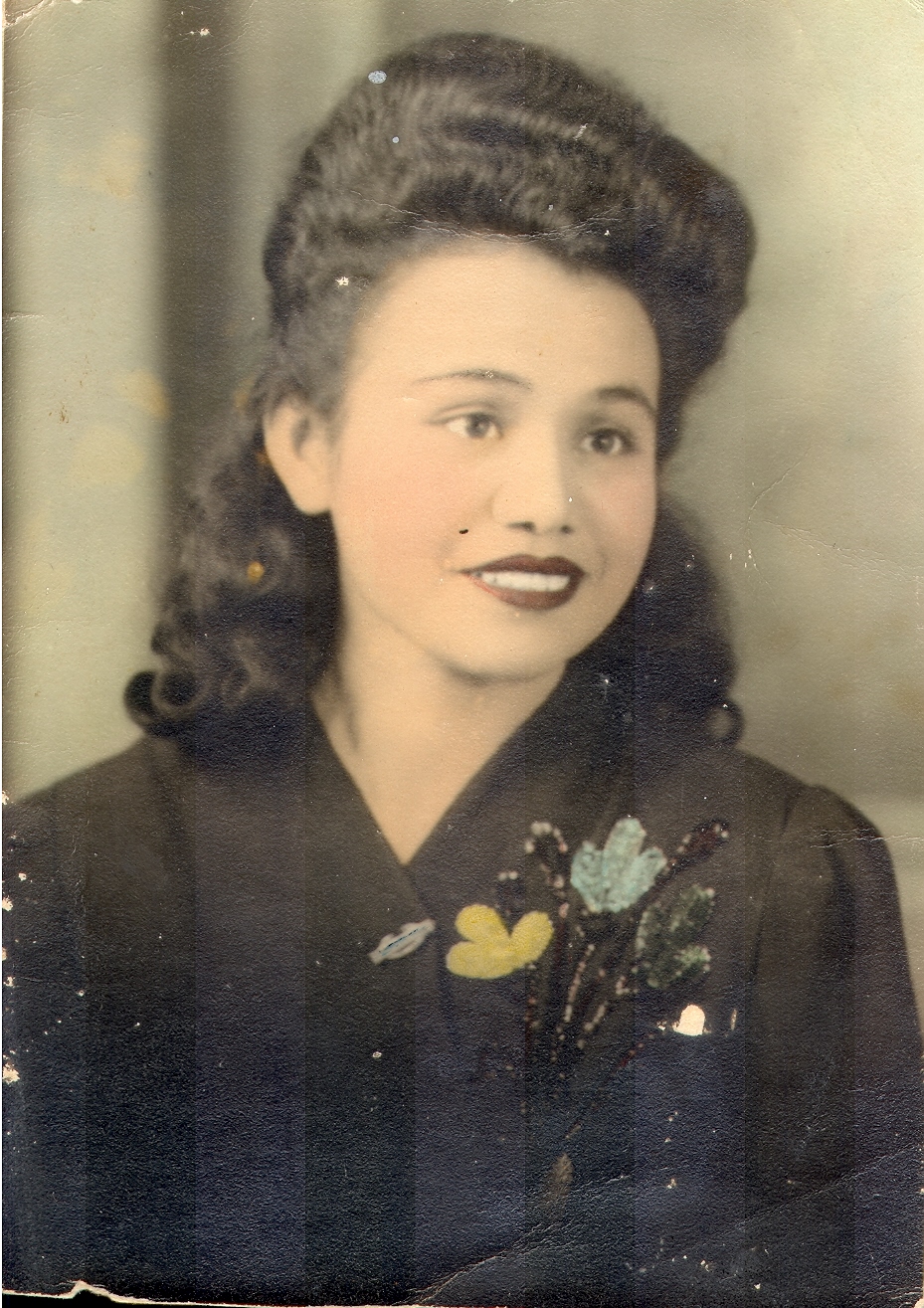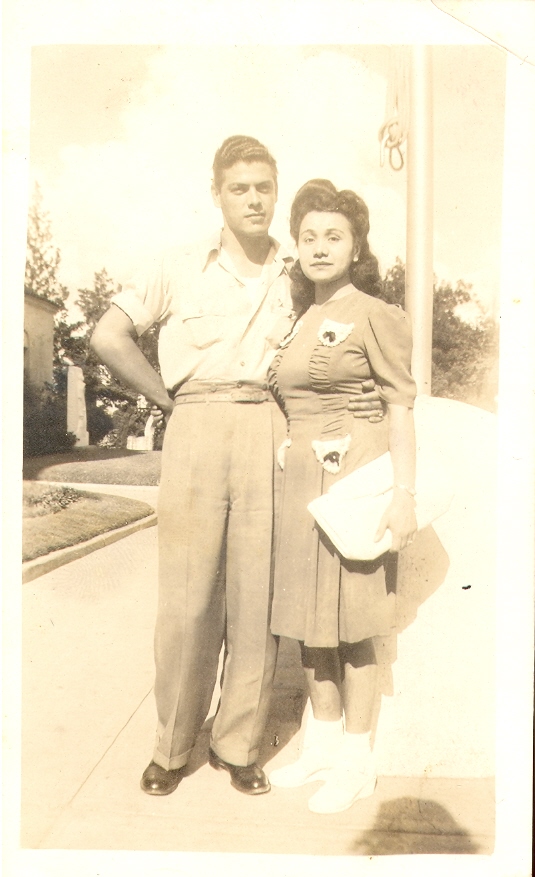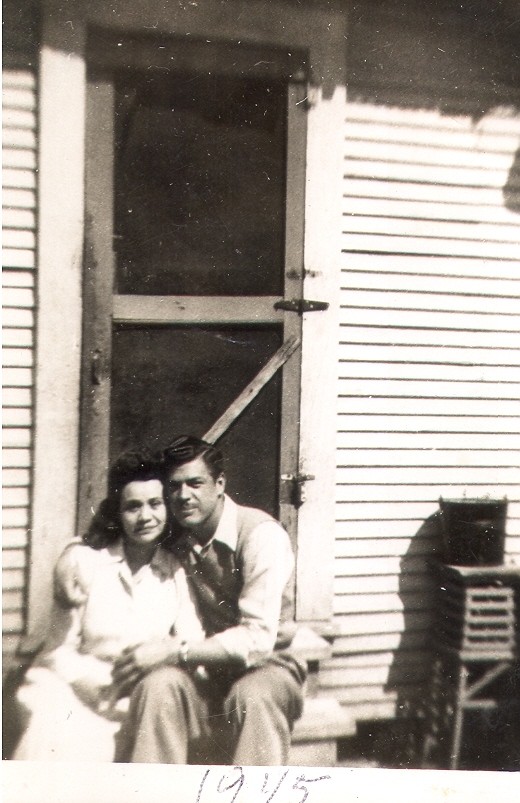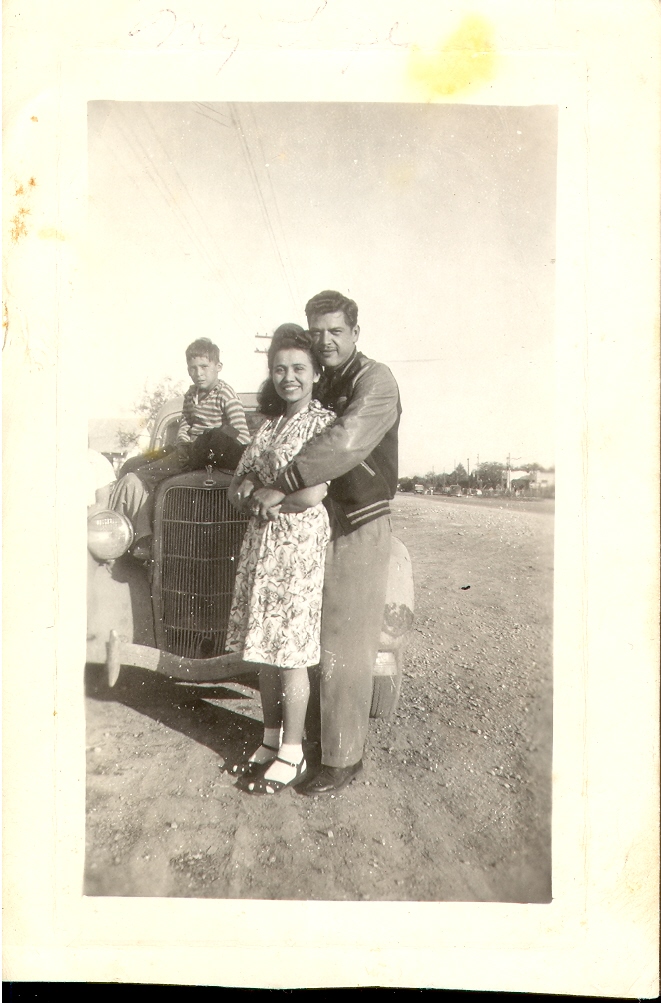Bacilia Cavazos Hernandez


Bacilia Cavazos Hernandez was born June 16, 1924, to Cristo and Nestora Cavazos in Yoakum, Texas. She has three siblings: Ignacio Cavazos was my grandfather, second is Rose Cavazos, and third is Delia Cavazos. Bacilia Cavazos was raised in San Antonio, Texas and has also lived in Grand Rapids, Michigan. She left school after the ninth grade. Bacilia worked at Santa Rosa Hospital downtown as a dietary, she fixed dinner trays for patients. She married her first and only husband Guadalupe Hernandez on June 30, 1946 at Christ of King Church. Her husband did not allow her to work! All she knew how to do was cook, clean, and conceive children. Bacilia was blessed with seven children. She is Catholic, her political affiliation is Democrat. Bacilia grew up with no air conditioning and owned three dresses that she wore, her economic status was middle class poor. Bacilia did not serve in the war, but her brother, Ignacio Cavazos (my grandfather) did. Bacilia Cavazos Hernandez now lives with her daughter Alicia Hernandez, she loves to watch the San Antonio Spurs and never misses a game, she also plays bingo, and goes to dances.
How was it like when you went to school? Describe a typical day?
I remember waking up early to go to school and getting ready to go to school. My mother
wanted us to be clean, my hair had to be comb and my dress had to be cleaned I owned three
dresses. I don't remember the name of the school, I went to school until the seventh
grade. After school she worked with her dad working in the fields in Seguin, Texas picking
onions, pickles, pecans, and milk the cows, I was 15. My dad would keep the money
she earned to support the family.
How were you treated as a girl compared to your brothers?
I wasn't treated different from my brothers, I just had to do household chores
wiht my mother, and my two older brothers were outside with my dad.
Do you remember growing up in Yoakum, Texas?
Not too much, because I was four years old when my family moved to San Antonio, Texas.
Did your family own a car? How was transportation like?
No, we had to walk miles to go anywhere, to catch the bus. When I married my
husband did own a car.
How was being Hispanic different growing up?
Just the way we lived and not getting education, but work.
Did any of family members get sick? If so how were they treated?
I remember not going to the hospital my mother took care of me and my brothers
we had no medicine just time to get better.
When you worked at Santa Rosa Hospital did you like your job?
Yes, I liked working at Santa Rosa my job was a dietary, I fixed dinner trays for patients.
I don't remember the pay but I remember my part-time job working at Kress Store as a waitress it is located downtown on Houston Street, I earned .85 cents an hour. Kress is a restaurant and store they
would sell floats, ice cream and hamburgers, and the store would sell clothes. They closed down early
1970's.

What are hardships you faced?
Just money, I had seven children.
Describe your role as a homemaker?
Everything was done outside, I washed clothes using a
wash board and had three buckets one to wash, rinse, and
one was for white clothes to put this blue soap like clorox. My cooking was done inside I made beans, tortillas, chicken. What had to be delivered
was milk and a block of ice to keep food cold.
Did your husband work when you were a homemaker?
Yes, he worked at a sausage company, I don't know how much he got paid I never saw a pay check
stub.
Did your husband allow you to vote? What issues were important to you?
Yes, I did vote I remember voting for councilmen. I don't remember their names.
Did you have any say that you wanted to work outside your home?
No, all I knew was to take care of my children and take care of the house.

Did your husband tell you how to dress? How to behave? Who to vote for?
At first when we got married, I owned this black sheer blouse it was my favorite. You could see my undershirt
that was black. Then I started wearing long dresses he didn't say anything.
Were the chores shared in the family?
I taught my three girls how to cook, clean, and sew. While Lupe took care of the boys.
What type of medical care did you recieve during your pregnancies? Where were your children born?
All of my seven children were born at Trinity Hospital located on Buena Vista, I recieved medication because
I had high blood pressure I would spend one month in the hospital.
Does technology in the household make you household work easier?
I still live old fashion, I have no air-condition just ceiling fans, I have no washer or dryer.

How have women's roles changed over your life?
I see my three girls and they have it better than what I did, my daugther Delia has a degree in education
and other two have some college, the funny thing is that they're in the early 40s and not married.
Do you remember any problems your mother went through?
I remember seeing my mother quiet and sad. Now I see what she went through.

What was and what did you expect after marriage as a woman?
I knew I expected after marriage living together and raising children and work.
Did you regret not working?
No, because all I knew was to take care the house and raise my children.